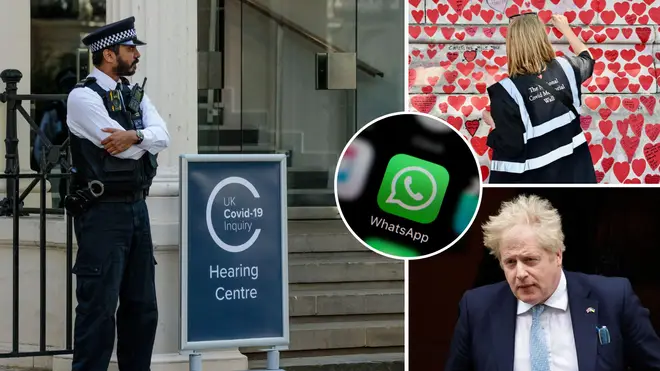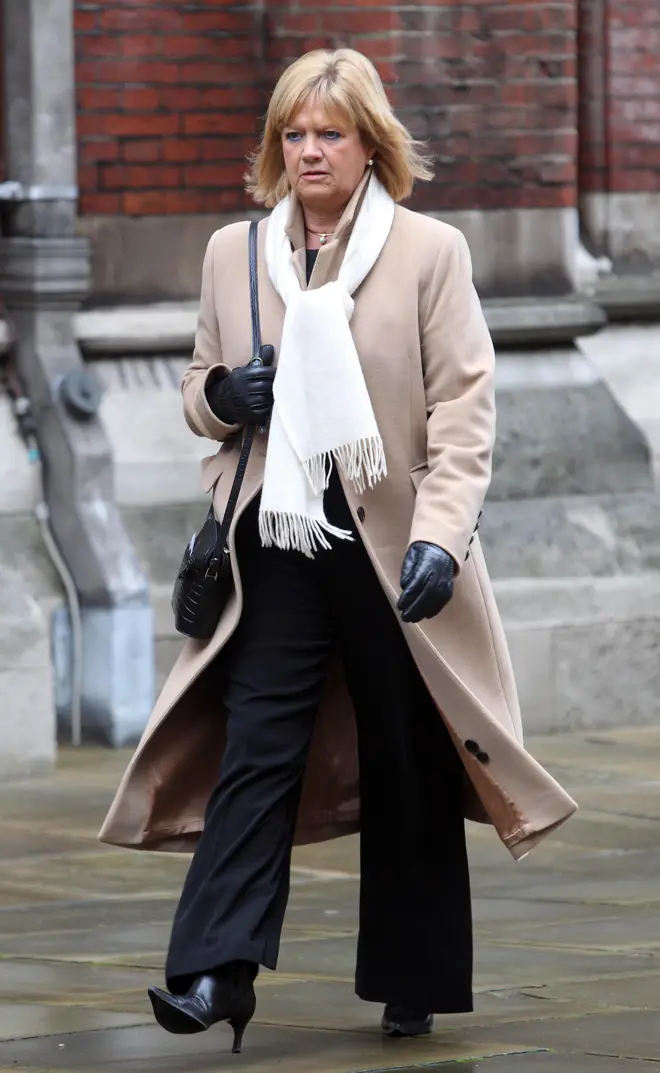
Clare Foges 6pm - 9pm
6 July 2023, 15:13 | Updated: 6 July 2023, 15:31

The Cabinet Office has failed to prevent the High Court from releasing Boris Johnson’s unredacted WhatsApp messages and diaries in the Covid inquiry.
Batherness Heather Hallett made an order for the former Prime Minister’s diaries, notebooks and WhatsApp messages to be shared in the Covid inquiry.
However the Cabinet Office sought to block the order, as the department’s lawyers argued ministers could not be forced to release messages that it claimed were “unconnected to the Government’s handling of Covid”.
The department unsuccessfully argued that it should be able to decide what material was “unambiguously irrelevant” in the ongoing inquiry.
However, announcing the ruling on Thursday, Lord Justice Dingemans and Mr Justice Garnham said the Cabinet Office should not be given permission to withhold the messages.
A legal challenge into the matter was launched last week, where both sides made their legal arguments.
High Court announced their decision on Thursday, just six days after the review was launched.
The inquiry’s lead counsel said if the Cabinet was allowed to decide which documents were relevant in the inquiry, it “would emasculate this and future inquiries”.
Lady Hallett, the chairwoman of the Covid Inquiry, also asserted that the Cabinet Office’s argument would have “seriously implications” for the inquiry and “undermine” her ability to carry it out the inquiry properly.
The judgement said: “We therefore dismiss the claim for judicial review but record that the Cabinet Office may respond to the notice by making an application pursuant to section 21(4), that it is unreasonable to produce material which does not relate to a matter in question at the inquiry. It will be for the Chair of the Inquiry to rule on that application."

The Government said it would “comply fully” with the judgement made.
The judges said the the fact the messages would produce “some irrelevant documents” did not “invalidate” its usefulness.
They added if a person: “Contends that a document caught by the request does not, as a matter of fact, relate to a matter in question at the inquiry, it will be for the chair of the inquiry to determine how to deal with such a contention".
Deborah Doyle, spokeswoman for Covid-19 Bereaved Families For Justice UK, said: "This judicial review was a desperate waste of time and money.
"The inquiry needs to get to the facts if the country is to learn lessons that will save lives in the future.
"That means it needs to be able to access all of the evidence, not just what the Cabinet Office wants it to see."
The inquiry chair said they will “return” any documents that “are obviously irrelevant”.
Responding to the judgement, a Government spokesman said: "The inquiry is an important step to learn lessons from the pandemic and the Government is co-operating in the spirit of candour and transparency.
"As this judgment acknowledges, our judicial review application was valid as it raised issues over the application of the Inquiries Act 2005 that have now been clarified.
"The court's judgment is a sensible resolution and will mean that the inquiry chair is able to see the information she may deem relevant, but we can work together to have an arrangement that respects the privacy of individuals and ensures completely irrelevant information is returned and not retained.
"We will comply fully with this judgment and will now work with the inquiry team on the practical arrangements."